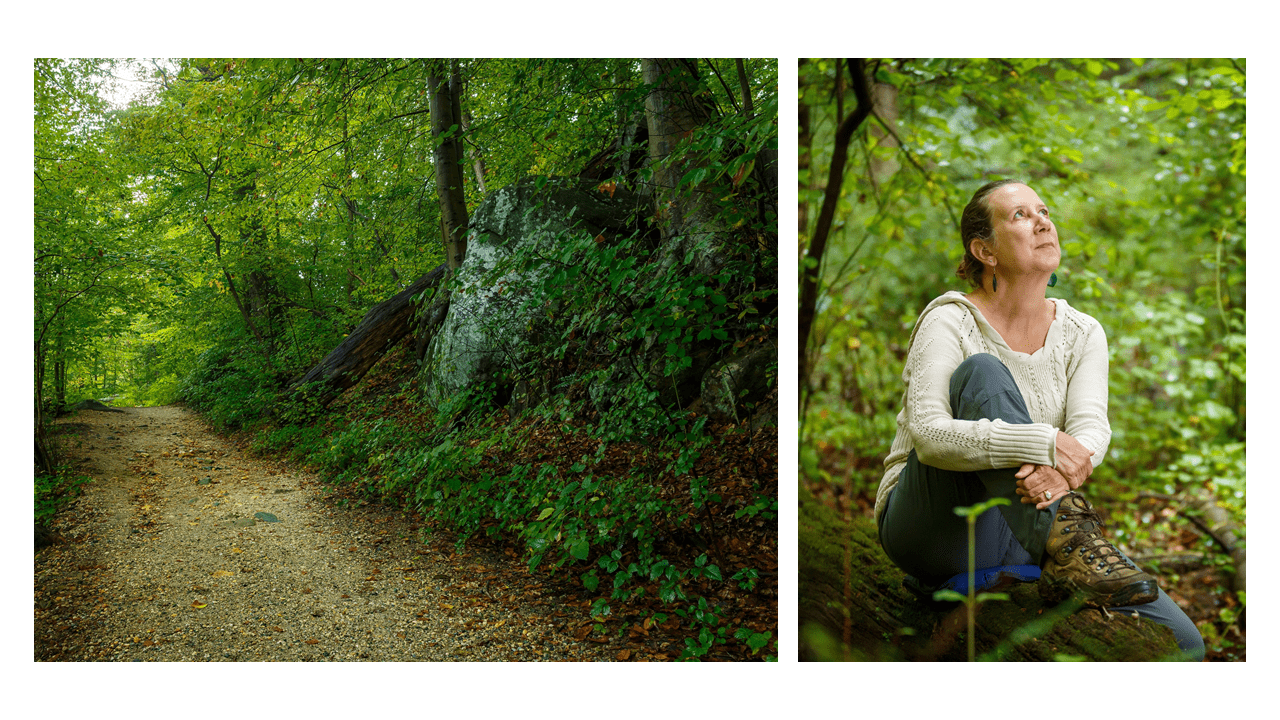She was getting awfully antsy.
She’d come to the park with a couple of friends expecting a walk in the woods, maybe a little bird watching, but certainly not this. Their guide had led them into the forest and invited them to consider their breath. How with each inhale they received the gift of oxygen from the trees, and with each exhale they returned that gift to the same trees as carbon dioxide. She found herself imagining a kind of endless exchange of air and life and her hand reached out to touch the tree beside her.
But now the guide was inviting them to sit among the leaf litter, to notice what they were seeing, hearing, smelling, feeling, even tasting. This was hard. It was hard to sit still, hard to concentrate, even harder to “be present” as instructed.
Should she get up and leave, risk insulting the guide and disappointing her friends?
Then she spied a spider’s web. It was just to the left of where she sat and a little above her head. It was caught between two branches, shimmering in the sun. She realized she’d have missed it entirely if she hadn’t sat down. She took in a long breath and let out a deep sigh. She was here and it was beautiful. For a little bit of time, 20 minutes at most, she didn’t need to be anywhere, to do anything. Later, as they left the woods, she told the guide, “The first 2 minutes of the “sit” were hell, the next 18 were pure joy.”
This is a common experience for people taking part in forest bathing for the first time. Shinrin-yoku, or forest bathing, is a Japanese outdoor mindfulness practice that invites participants to slow down, be curious and employ their own sensory powers to absorb nature more fully. The benefits of such an experience are manifold. Generations of medical doctors, mental health experts, and indigenous healers have recognized the power of nature to soothe, restore, and invigorate human beings both physically and mentally. Now, research shows that extended, contemplative time in nature resets the balance between our sympathetic and parasympathetic nervous systems. It can reduce stress, boost immune function, lower blood pressure, increase energy, and improve our ability to concentrate.
No matter the age, ability, or life-experience of the individual, forest bathing is like getting a big hug from nature.
By Susan West Montgomery, Kripalu certified Outdoor Mindfulness Guide. Experience forest bathing for yourself as part of a Himalayan Institute of Buffalo program, August 20, in Williamsville. Find all the details here.
Want to give a mindfulness exercise a try, without a walk in the woods? Spectrum Health’s Donna Gill leads a mindfulness experience Monday, Wednesday, Friday, Saturday, and Sunday at 10am in our Community of Caring.


